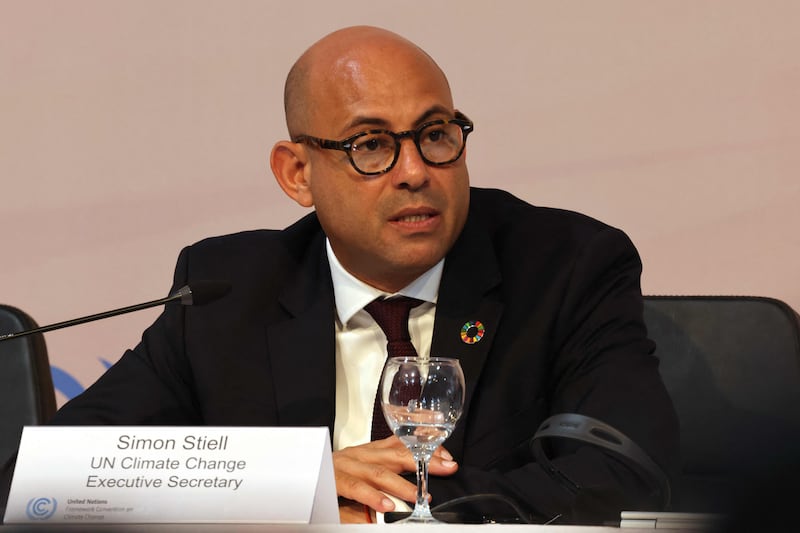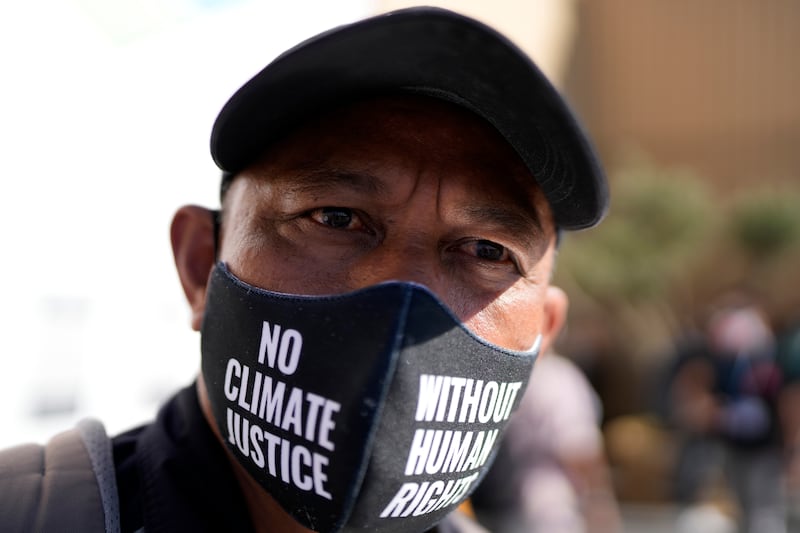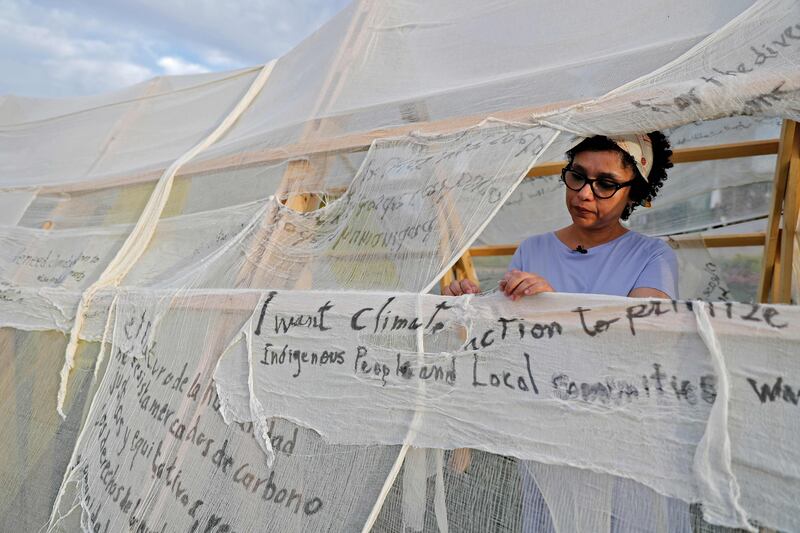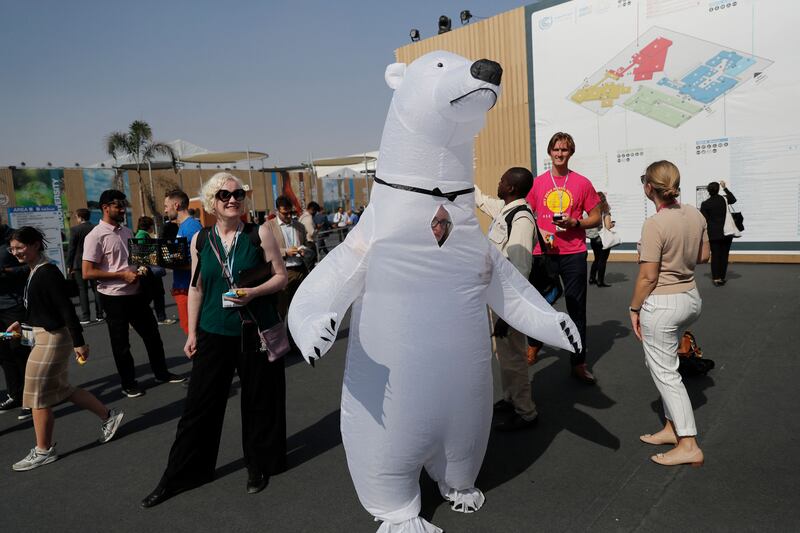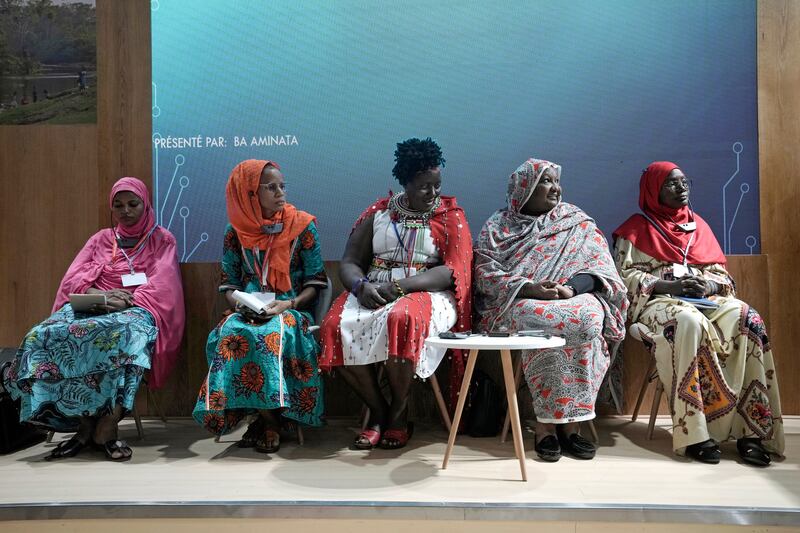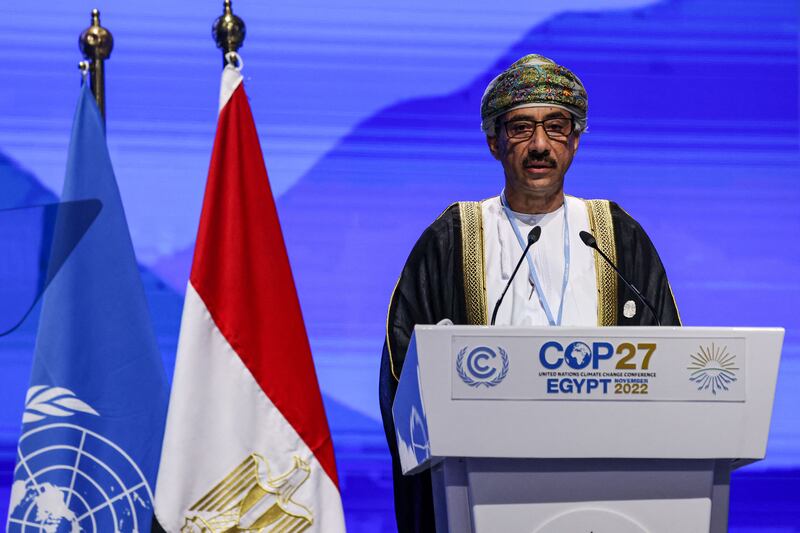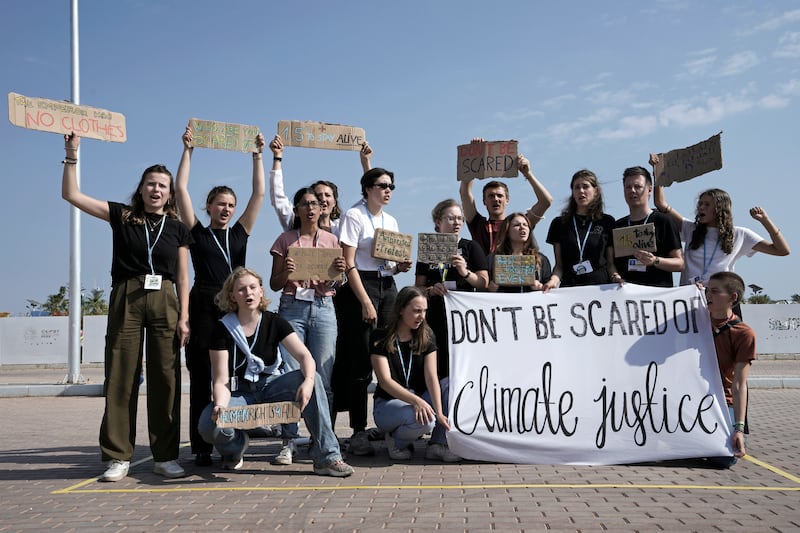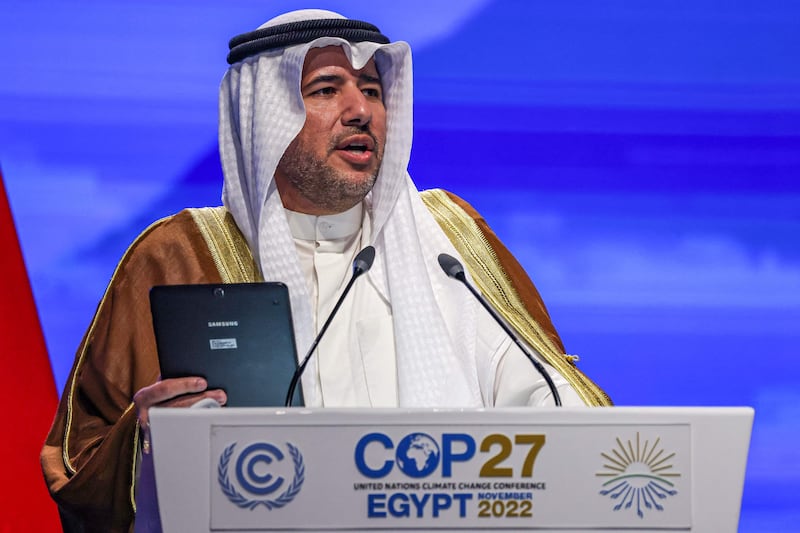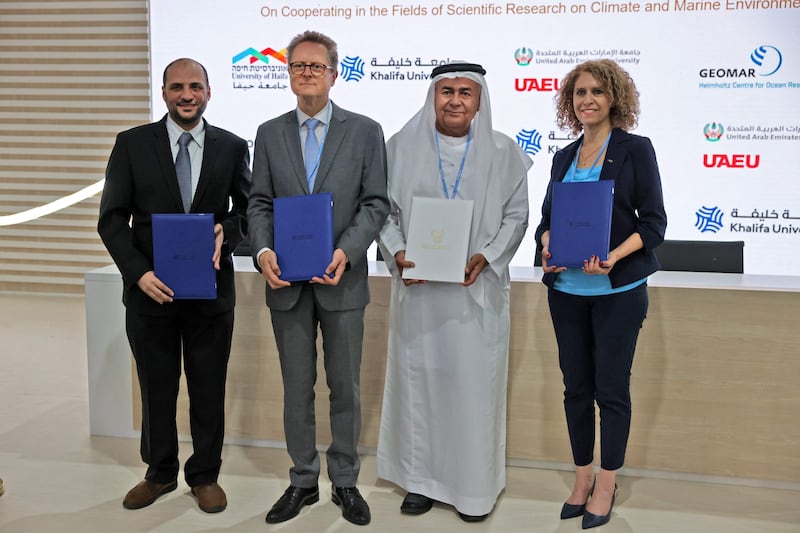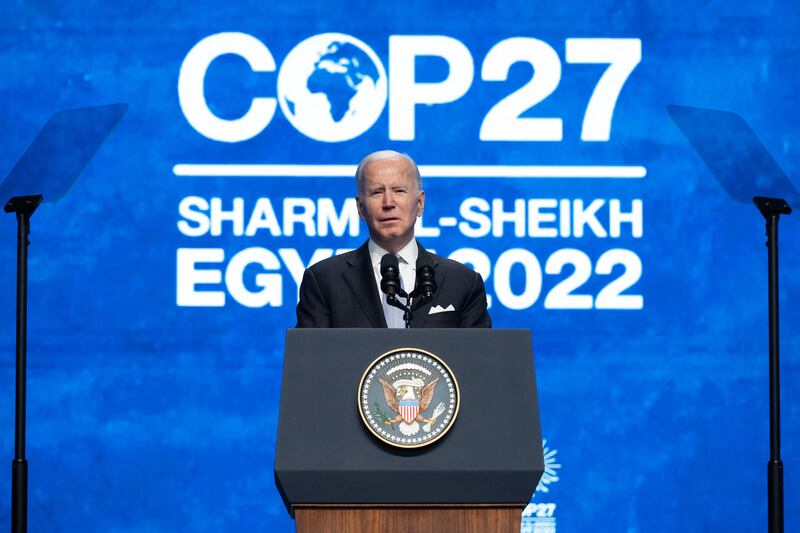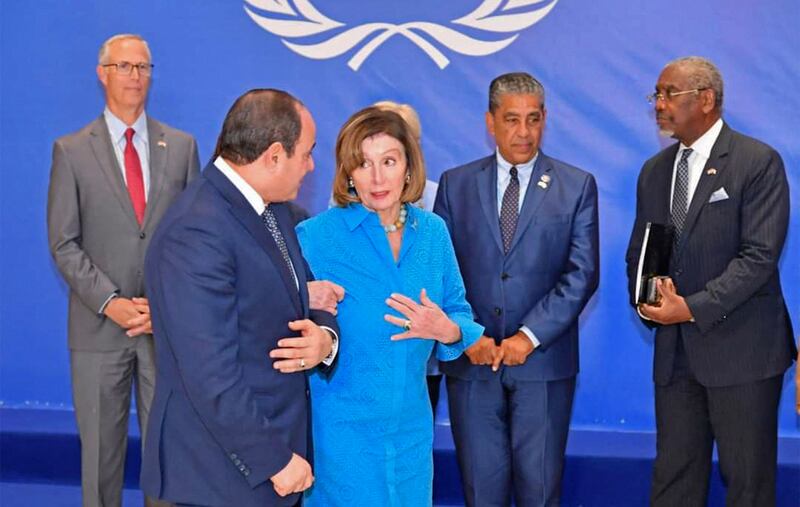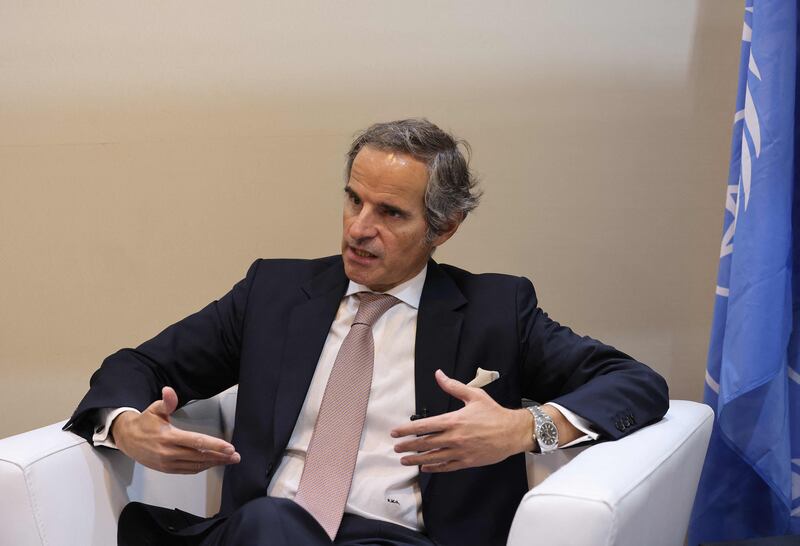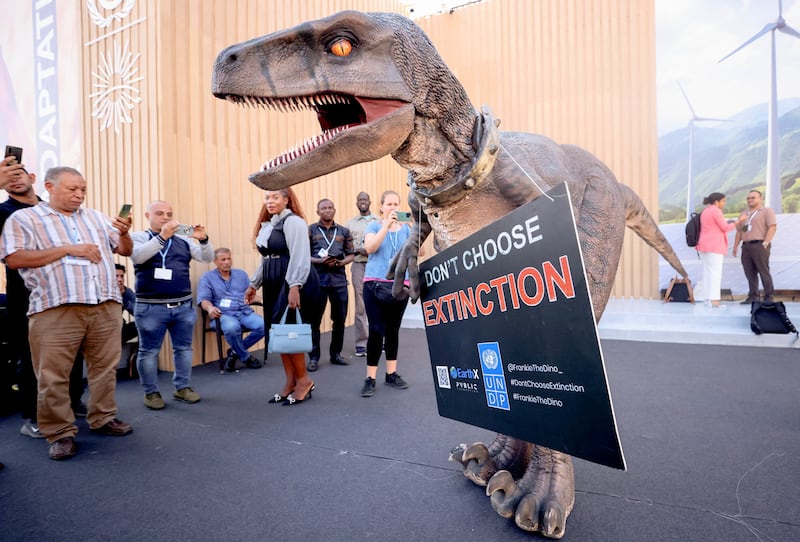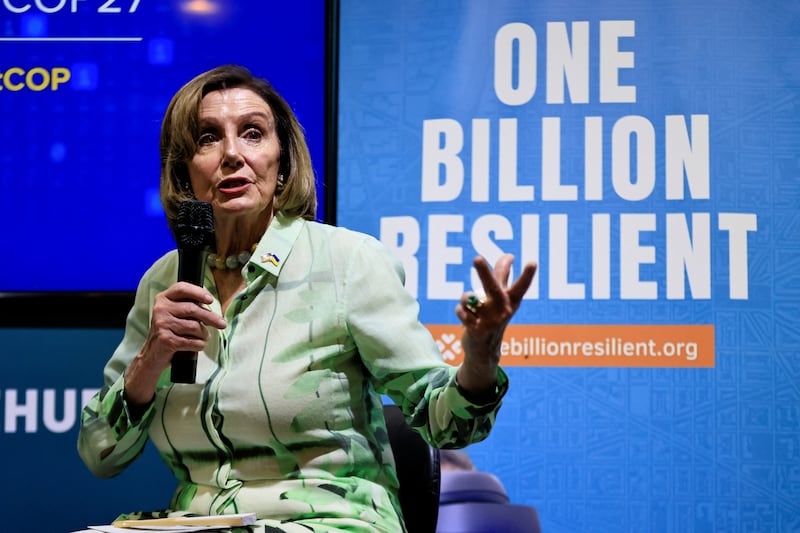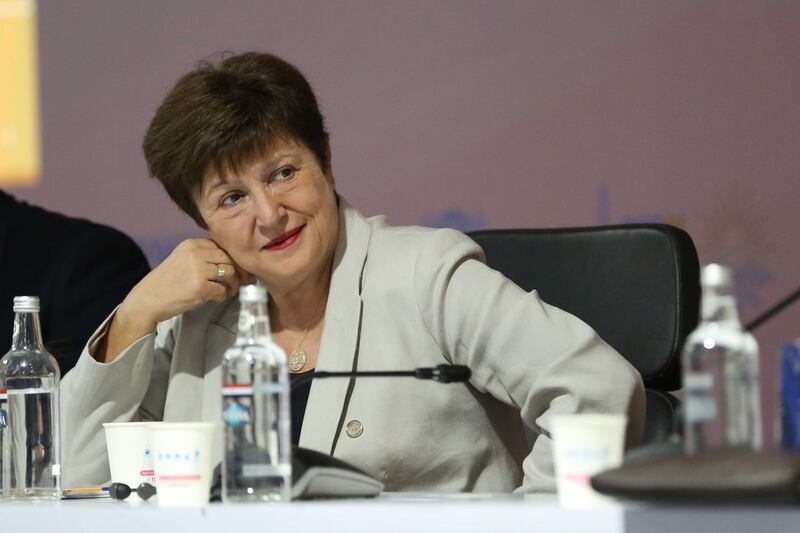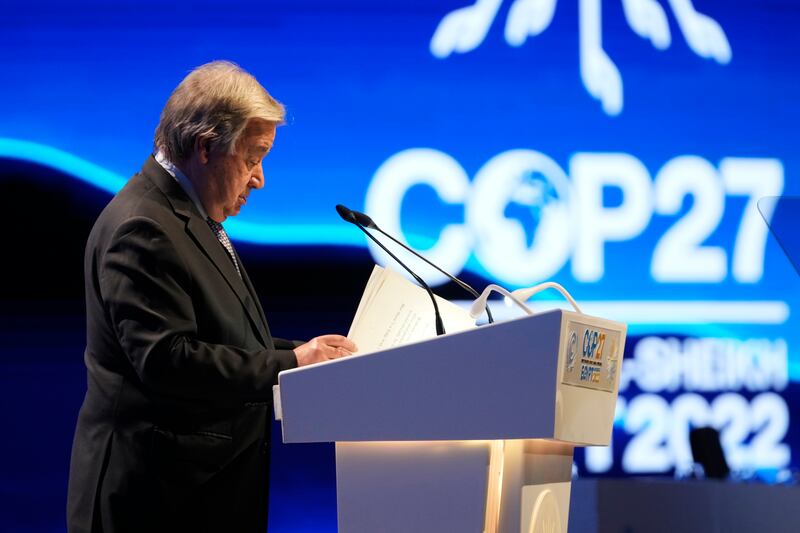There are limits to how much people and ecosystems can adapt to climate change is the warning from a new report presented at Cop27.
The study, entitled 10 New Insights in Climate Science, says that the number of people living in communities at risk from climate change was likely to increase dramatically over the coming decades.
Large numbers of people are already dying because of the effects of climate change, delegates were told when the report was unveiled in Sharm El Sheikh on Thursday.
Among the report’s key findings are that 1.6 billion people live in "vulnerability hot spots", or areas highly susceptible to climate-driven hazards, and this number will double by 2050.
The Middle East is among the regions identified as being home to such hot spots, while others are in the Sahel, Central America, Central and East Africa, and Asia.
Speaking at a press conference to launch the report, Simon Stiell, the UN climate change executive secretary, described the report findings as alarming.
"Adaptation alone cannot keep up with the impacts of climate change, which are already far worse than originally predicted," he said.
"Adaptation actions cannot substitute for mitigation … the less we mitigate, the more we have to adapt."
Risk for vulnerable communities
Echoing this, a member of the report’s editorial board, Prof Johan Rockstrom, of the Potsdam Institute for Climate Impact Research, said that if global temperatures rose more than 1.5°C above pre-industrial levels ― a key aim of the 2015 Paris Agreement ― they "risk going beyond what vulnerable communities can cope with".
As well as highlighting the limits to adaptation, the report also states that more extreme weather events and slow-onset climatic changes "will increasingly drive involuntary migration and displacement".
"If we want to have a peaceful and secure future, we need to address climate change," Prof Rockstrom said. "Even conflicts are being amplified by climate change."
The report is the latest of an annual series produced by Future Earth, an environmental research programme, The Earth League, a network of scientists and institutions, and the World Climate Research Programme, an initiative supported by the World Meteorological Organisation and the International Council for Science.
Among the other issues the report highlights are the health effects of climate change, and one of the report’s authors, Prof Kristie Ebi, of the University of Washington’s department of global health, said that already "thousands to tens of thousands of people" were dying because of these effects. Yet, she said, less than 1 per cent of the spending on climate adaptation went on health.
'Scratching the surface'
Other key conclusions in the report are that human security requires climate security, that sustainable land use is essential to meeting climate targets (with sustainable intensification being employed instead of taking more land from nature) and that the private sector’s transition to sustainable finance is happening too slowly.
"It’s only scratching the surface and not having the deep indent on shifting the flow of capital in the way that’s required," Prof Rockstrom said of efforts by the finance sector to develop a more climate-friendly economy.
"We are far from mainstreaming zero carbon finance, which is what we need to have a zero carbon economy by 2050."
The report also called for more inclusive decision-making when it comes to climate, a "co-ordinated global policy response" around issues of loss and damage, and efforts to break down structural barriers that arise from the current "resource-intensive economy".
Despite the challenges, and concerns that national governments are not doing enough to mitigate climate change, Prof Ebi indicated that there was cause for optimism.
"It’s important to not just look at national policy," she said. "It’s important to look at what’s happening sub-nationally. It’s important to look at what businesses are doing.
"There was very little publicity when all of the major automobile manufacturers announced they were out of internal combustion engines. That’s a huge shift. It was not driven by government policy
"I live in Seattle. Boeing is testing electric aeroplanes. There’s enormous change that’s going on. I think we need to celebrate the advances we’ve made knowing that there’s a lot more that needs to be done."
